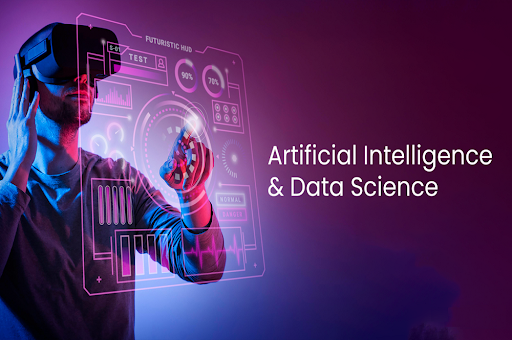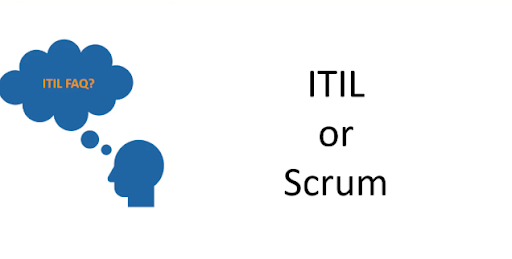Data Science Syllabus and Subjects: What You Should Know Before Choosing a Course
Posted on on March 15, 2025 | by XLNC Team

Data science is one of the technology's fastest-evolving domains, and companies across the globe are using its strength to obtain insights, automate operations, and fuel innovation. If you are thinking about enrolling in a data science and AI course, knowing about the syllabus and topics discussed is important before making a decision.
A data science and AI course integrates several fields, such as statistics, machine learning, programming, and data visualization. Whether you're a prospective data scientist, business analyst, or AI enthusiast, understanding what topics you'll learn can assist you in selecting the proper course and having realistic learning expectations.
This handbook will discuss the major subjects covered in a data science and AI course, how they add value to your learning, and what you should take into account when signing up.
Is learning data science and AI worth it?
Before getting into the syllabus, let's see why learning data science and AI is worth it:
High Demand: Businesses in every sector require data science experts to interpret data and make informed choices.
High Paying Salary: Skilled data scientists and AI engineers get the highest-paying jobs.
General Applications: The applications of data science and AI range from medical to financial sectors, marketing, and online shops.
Promoting Career Opportunities: Studying data science and AI can lead one to career prospects such as a Data Scientist, AI Engineer, Business Analyst, and others.
Considering all of these advantages, let's delve into what a typical course in data science and AI constitutes.
Core Subjects in a Data Science and AI Course
A well-structured data science and AI course covers fundamental and advanced topics. Here’s a breakdown of the core subjects you’ll study:
1. Introduction to Data Science and AI
What is Data Science?
Difference Between AI, Machine Learning, and Deep Learning
Real-World Applications of Data Science
Role of a Data Scientist
This initial module gives an overview of how data science and AI are revolutionizing sectors. It acquaints you with what to anticipate from the course and how these technologies complement each other.
2. Mathematics and Statistics for Data Science
Linear Algebra
Probability and Statistics
Hypothesis Testing
Regression Analysis
Mathematics and statistics are the foundation of data science and AI. These ideas enable you to grasp data patterns, make predictions, and optimize machine learning models.
3. Programming for Data Science (Python & R)
Python or R for Data Science
Data Manipulation using Pandas and NumPy
Data Visualization using Matplotlib and Seaborn
Writing Functions and Working with Libraries
A course in data science and AI involves coding practice using Python or R, the most widely used languages in data science. It is essential to learn programming in order to manage datasets, construct algorithms, and automate processes.
4. Data Wrangling and Preprocessing
Managing Missing Data
Data Cleaning Techniques
Feature Engineering
Data Transformation and Normalization
Raw data tends to be unstructured and disorganized. This topic does not only educate students to clean and prepare the data for analysis but also make the data accurate and reliable while making decisions.
5. Machine Learning Algorithms
Supervised Learning (Linear Regression, Decision Trees, Random Forest)
Unsupervised Learning (K-Means Clustering, PCA)
Model Evaluation and Performance Metrics
Machine learning is an integral part of data science and AI education. Knowing algorithms enables students to build predictive models and automate intricate tasks.
6. Neural Networks and Deep Learning
Neural Network Introduction
Convolutional Neural Networks (CNN) are used for image processing
Recurrent Neural Networks (RNN) are used for time-series data
TensorFlow and PyTorch Fundamentals
Deep learning allows AI models to deal with vast amounts of data at high speeds. The module deals with the construction and training of neural networks in complex AI applications.
7. Natural Language Processing (NLP)
Text Preprocessing
Sentiment Analysis
Named Entity Recognition (NER)
Chatbots and Speech Recognition
NLP is critical for use cases such as virtual assistants (Alexa, Siri), customer service automation, and social media sentiment analysis.
8. Big Data and Cloud Computing
Big Data Technologies Introduction (Hadoop, Spark)
Data Storage Options (SQL, NoSQL)
Data Science in the Cloud (AWS, Google Cloud, Azure)
Big data technologies enable firms to store, process, and analyze large volumes of data cost-effectively. This topic equips learners for practical data challenges.
9. Data Visualization and Business Intelligence
Dashboard Building Using Tableau and Power BI
Data Storytelling
Interactive Visualization Designing
Data scientists are required to communicate insights effectively. Through this module, students can make effective decision-making reports and dashboards.
10. Responsible AI and Data Governance
Ethical AI Model Avoiding Bias
Data Privacy Legislation (GDPR, CCPA)
Responsible AI Designing
The greater the impact of AI, the more crucial ethics become for delivering fairness, transparency, and accountability in data-based systems.
Some Key Factors Before Enrolling in a Data Science and AI Course
Since there are numerous courses to choose from, choosing the appropriate data science and AI course can be a daunting task. Here's what you need to look for before joining:
1. Course Syllabus and Depth
Is the syllabus comprehensive, with beginner as well as advanced topics covered?
Are practical assignments and coding hands-on included?
Is the balance between theory and practice achieved?
2. Instructor Expertise
Are the teachers industry experts with hands-on experience?
Do they offer mentorship and career advice?
3. Mode of Learning (Online or Offline)
Does the course have self-learning or live classes?
Are there recorded sessions for practice?
4. Industry-Relevant Tools
Does the course cover Python, R, TensorFlow, and SQL?
Have students been introduced to cloud computing and big data tools?
5. Placement Assistance and Career Support
Does the institute provide job placement assistance?
Are there internship opportunities and resume-building sessions?
A data science and AI course that provides industry exposure, project work, and placement support can significantly boost your career prospects.
Future Career Opportunities in Data Science and AI
After completing a data science and AI course, professionals can explore roles such as:
Data Scientist (Analyze and interpret complex data sets)
AI Engineer (Develop intelligent automation systems)
Machine Learning Engineer (Build predictive models)
Business Analyst (Uses data insights for strategic decision-making)
Data Engineer (Build and maintain data pipelines)
The need for AI and data science experts keeps increasing, making it a lucrative career option for those interested in technology.
Take the First Step Toward a Data Science Career
Selecting the appropriate data science and AI course is an essential step towards establishing a successful data science career. Knowing the syllabus and topics taught enables you to choose a program that fits your career aspirations.
At XLNC Academy, we provide industry-oriented data science and AI courses that offer hands-on training, expert guidance, and career assistance.
Join us today and begin your data science and AI journey with XLNC Academy!
Search
Latest Blogs
-
 Certified Ethical Hacker (CEH) Online Training Advance Your Cybersecurity Skills
Certified Ethical Hacker (CEH) Online Training Advance Your Cybersecurity Skills
-
 Which Scrum Master certification ASM, PSM or CSM
Which Scrum Master certification ASM, PSM or CSM
-
 Is Getting a Six Sigma Black Belt Worth It Pros ,Cons and Career Impact
Is Getting a Six Sigma Black Belt Worth It Pros ,Cons and Career Impact
-
 Generative AI Course 2025 for Software Developers and Engineers
Generative AI Course 2025 for Software Developers and Engineers
-
 Top Black Belt Certifications and Training for Quality Managers to Drive Organizational Excellence
Top Black Belt Certifications and Training for Quality Managers to Drive Organizational Excellence
-
 Data Science Syllabus and Subjects: What You Should Know Before Choosing a Course
Data Science Syllabus and Subjects: What You Should Know Before Choosing a Course
-
 What is the difference between ITIL and Scrum certifications
What is the difference between ITIL and Scrum certifications
-
 Six Sigma certification: The six-level path to Master Black Belt
Six Sigma certification: The six-level path to Master Black Belt


